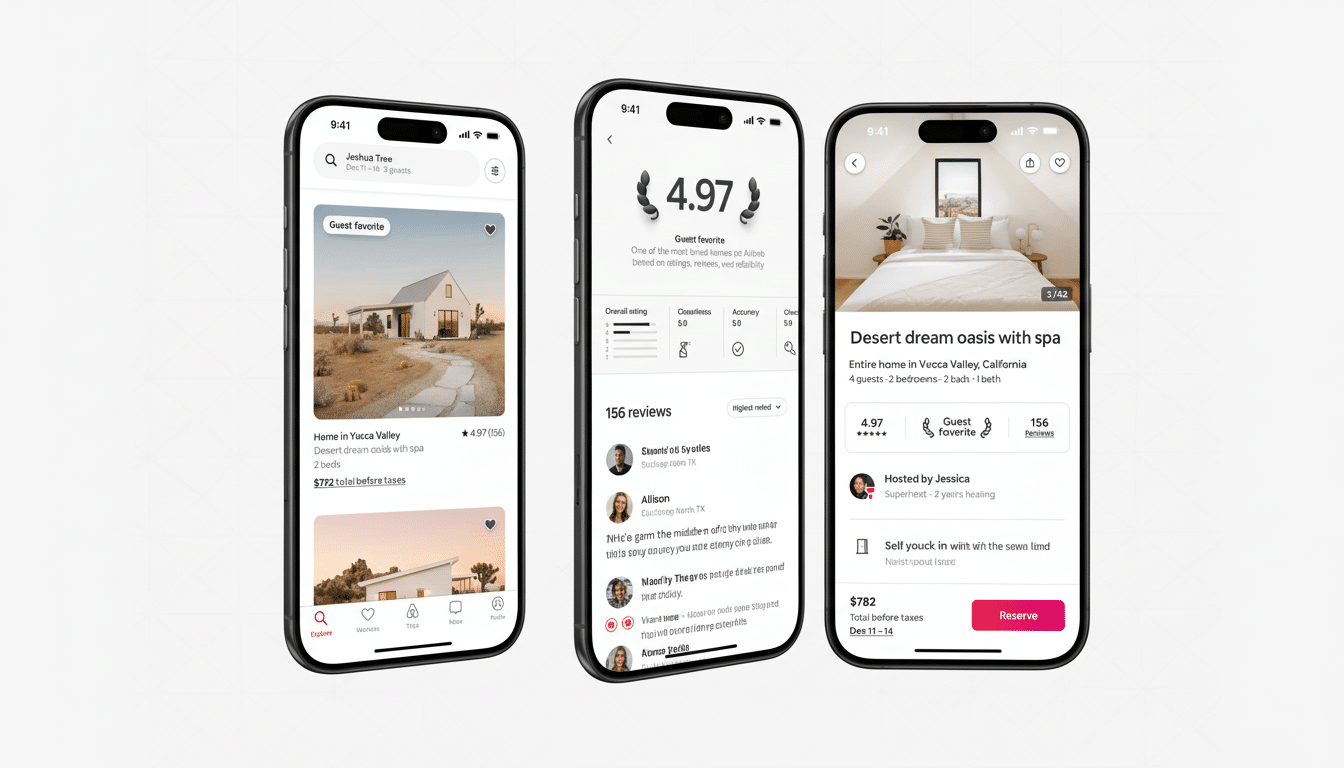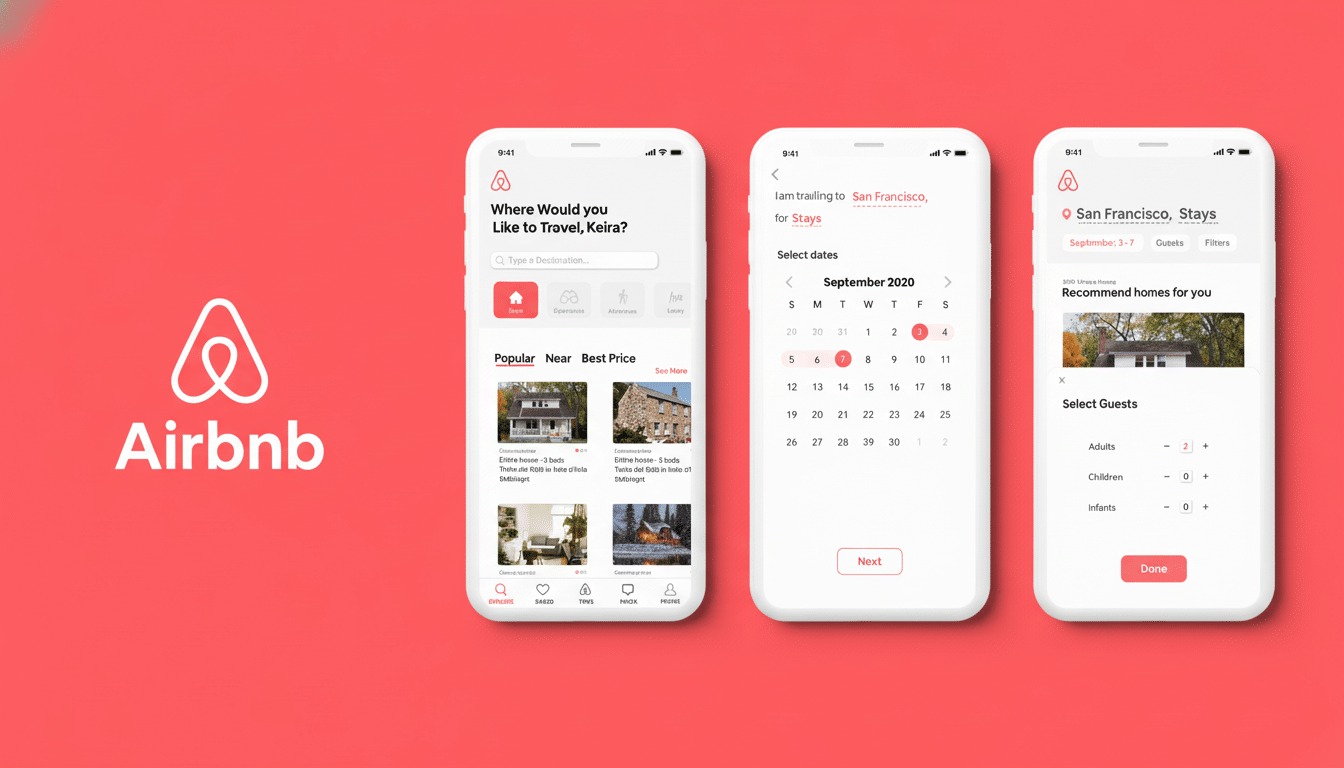Airbnb has been testing out a feature that would enable travelers to stock the kitchen in their vacation rental before they arrive, setting up an integration with Instacart right within Airbnb — so you can order groceries before a stay and find everything put away when you get there.
Bloomberg reports that it’s operating the program as a limited trial in Phoenix, Orlando and Los Angeles, with an Instacart experience inside the app that connects a guest’s booking to a pre-arrival order. It’s meant to take the delayed morning rush for breakfast essentials, such as snacks or coffee, that post-flight travelers often cause — especially families and groups who turn entire homes into their temporary digs so they can cook.

There’s an unmistakable host factor, too. Participating hosts get $25 for each completed Instacart order that is delivered to their property and a $100 bonus on the first one, if they are home to receive the delivery and continue putting everything away on time. The payout structure sends the message that Airbnb is not fuckin’ around and believes kitchen stocking should be treated as a legitimate service, not some loosey-goosey favor.
How the Airbnb and Instacart kitchen-stocking pilot works
Guests book an eligible listing in one of the test markets and can access an Instacart-powered flow within the Airbnb app to shop local grocers. The order is attached to your reservation and will be delivered prior to check-in. Hosts who sign up accept the delivery, refrigerate perishables and stock pantries so the kitchen is ready when guests arrive.
While fine print was not immediately posted, the redux of responsibilities is fairly simple: Guests select and pay for groceries — along with any service fees or tips — while hosts take care of receipt and stocking. That places the focus on a slick handoff — clear delivery driver access instructions, cold storage for perishables and two-way communication windows that don’t surprise either end of the transaction.
The approach draws on the example of villa managers and high-end hotels that have offered pre-arrival pantry services for years, but right-sizes it for peer-to-peer rentals in which on-the-ground labor isn’t always a given.
Why Travelers Care About Pre-Arrival Kitchen Stocking
One of the most commonly cited reasons people choose home rentals over hotels is access to a full kitchen, and food costs are one of the top levers for maintaining trip budgets. Landing late and having milk, fruit, coffee and breakfast all ready can significantly improve the first 12 hours of a stay — no running to the grocery store late at night, no guesswork about what a local shop might carry.
Instacart’s footprint also helps. The service can reach more than 95% of U.S. households through thousands of its partner grocers, the delivery company said. That coverage boosts the chances that hosts in larger markets may rely on the brands that they know and guests may access familiar aspects like substitutions and shopper notes, now located in tandem with their Airbnb booking.
For family travel, friends group getaways and longer stays where meal planning is crucial, pre-stocking lines up with the way many guests already prefer to use rentals — treating the property as a temporary home rather than just a room to sleep.

What Hosts Should Consider Before Enabling Kitchen Stocking
The payout could lure hosts, but execution will decide whether it sticks. It takes time to coordinate schedules, grant delivery drivers safe access and even unpack. Clear definitions of what “put away on time” means — and how exceptions are addressed if a delivery is late — will be key.
Policy wrinkles: Alcohol deliveries often require I.D. checks; some buildings limit third-party couriers; and hosts must guarantee food safety with refrigerated orders. House rules may require revision to make clear what is acceptable and who’s on the hook when something is missing or a substitute will not do.
Still, for professional hosts or those who use co-hosts and local teams, the feature could be a small but valuable discriminator that drives guest satisfaction and repeat bookings.
Strategic Signals For Airbnb And Instacart
For Airbnb, the pilot is a fresh expansion of the company’s reach beyond search-and-book and into on-trip services that take friction out of the experience. Kitchen stocking is a logical add-on option for whole-home rentals, and pairs well with existing efforts to showcase amenities.
For Instacart, the partnership is a channel play — it integrates grocery delivery into contexts of travel with high intent and timing that’s both easy to understand and explicit. If the trial lifts order frequency as people check in, it could create a new category: occasion-based shopping.
What to Watch Next as Airbnb Tests Instacart Kitchen Stocking
Adoption rates for hosts and guests, on-time delivery performance and satisfaction scores likely would influence an expansion beyond initial markets. If the numbers work — another way to describe what’s happening is that Instacart no longer has to overpay its Shoppers, as it did when the unemployment lines were long and jobs scarce; travelers truly get something out of it — look for wider deployment.
If not, the pilot will serve useful lessons about where responsibility falls in a marketplace model: When does the grocery bag become part of the hospitality experience, and how can you draw (or have drawn for you) a line between platform and service provider?

